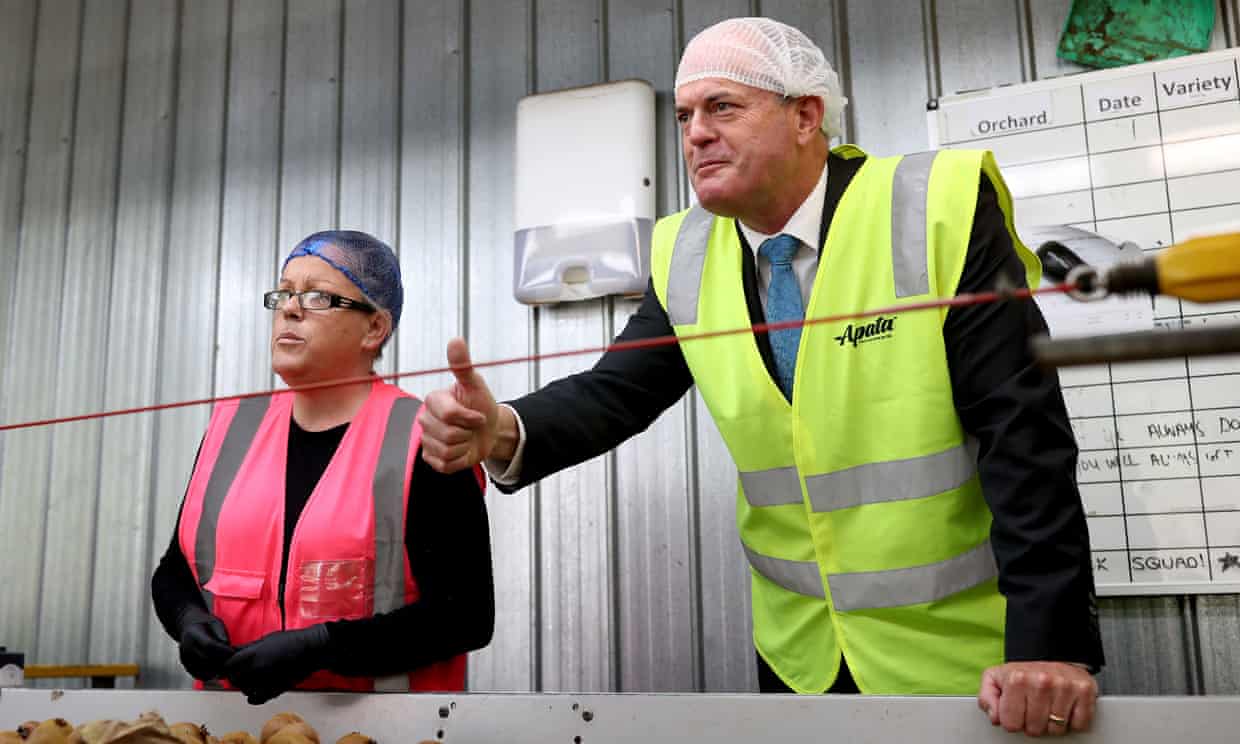
Opinion
Todd Muller’s beige persona might not be a bad thing in the battle against Jacinda Ardern
New Zealanders generally don’t like their leaders too colourful or ideological, which might play well for the new opposition leader after a horror first week
by Bryce EdwardsThe new National Party leader, Todd Muller, had been at pains to portray himself as a solid, serious, safe pair of hands, in contrast to the increasingly Trumpian leanings of Simon Bridges, who Muller deposed in a leadership coup last Friday.
But after an uneventful, if uninspiring, first press conference, Muller’s debut week quickly took a horror turn. He became enmeshed in a scrap with media and commentators over his Maga hat, doubling down on his intention to display it in his new office, but later capitulating under pressure.
He was then forced to defend an all-white frontbench, as reporters asked why there were no Māori MPs in his senior leadership. This took a farcical turn when his deputy Nikki Kaye, desperately casting about for a high-ranking Māori MP, wrongly identified finance spokesperson Paul Goldsmith as Māori, to the scarcely concealed amusement of recently dispatched Māori deputy leader Paula Bennett.
Muller has also been subjected to a series of embarrassing leaks from his own caucus, including the allegation that the new leadership has set up an intelligence unit designed to dig up dirt on opponents leading up to the election.
Even when he was given a chance to offer his vision for New Zealand’s economic recovery in a serious interview with TVNZ he was unable to redeem himself, admitting he had no firm plan.
With the election just 16 weeks away and support for National having collapsed – the most recent polls show them dropping 17 points, from 46% to just 29% – National’s chances of deposing Jacinda Ardern’s government at the general election on 19 September already seemed slim.
This week Muller has discovered that carrying out a successful coup is one thing, but leading a party is something else altogether, particularly when your own caucus is bitterly divided.
However, things will inevitably settle down and a rebound in the polls for National is likely. As fanciful as it seems right now, a win in September is not even off the cards. This may hinge on whether Winston Peters’ NZ First makes it back in, and if Muller wants to repair the damaged relationship between their parties.
Much will also depend on how well Muller manages to direct his party back towards the centre of the political spectrum, and whether he can provide a credible alternative to the government’s economic management through the coming recession.
Inside National there have long been rumblings that, under the leadership of Bridges and Bennett, National had drifted too far to the right and into social conservatism. The focus will now be much less on law and order, gangs, or even on the lockdown, but instead on the economy. In light of the looming recession, this will soon be the only topic of real importance to voters. National will hope that the coming dislocation and suffering, brought about by mass unemployment and business failures will make voters doubt the government’s ability to manage the country out of recession.
We’ve already seen that Muller is determined to push the interests of small business. This is clever, as so much of the New Zealand economy is based on small to medium enterprises. A report published this week by Infometrics suggests that 80% of the coming job losses are likely to be from small businesses.
Muller’s beige persona might not actually be a bad thing for National. As a “blank slate” he could allow voters who to project positive attributes onto him. Certainly, having a lack of baggage and declared political views makes him less of a target for opponents. In electing Muller, National has chosen to try to make the election campaign less about a personality contest against Ardern (which they would clearly lose).
In fact, New Zealanders generally don’t like their leaders to be too colourful, ideological or intellectual. Popular leaders such as Helen Clark, John Key, or even Ardern haven’t been particularly exciting or bold in their political work.
Even Muller’s unfortunate stumble into the culture wars is unlikely to cost him. Controversies over Muller’s Trump hat and the ethnicity of his senior colleagues have been embarrassing, and they’re exactly the sort of issues that the new leader has wanted to leave behind as he replaces Bridges. But many swing voters will have watched as the media applied the blowtorch over the hat and the white frontbench, and been less than sympathetic to the criticisms.
In the end, while a torrid first week in the job is something of a setback for the new leader, Muller’s poor performance will soon be forgotten if he quickly gets his act together. Crucially, he needs to come up with something more solid in terms of his plans for dealing with the recession – he will need to make some sort of major announcement in the next week or so. As the economic impact of Covid-19 bites hard, these early setbacks are likely to be forgotten by a public more concerned with the recession than interview techniques, frontbench personnel, and hats.
- Bryce Edwards is a senior associate at the Institute for Governance and Policy Studies at Victoria University, Wellington, New Zealand